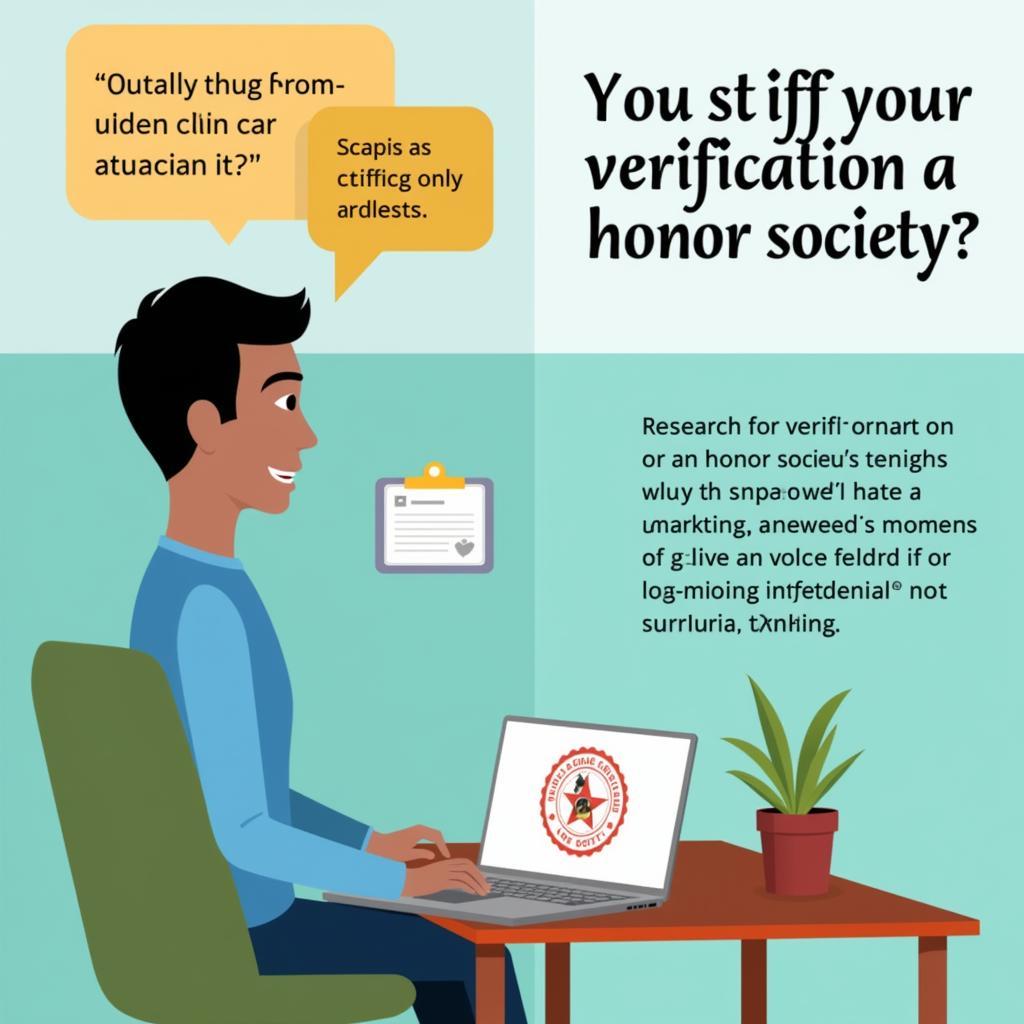Navigating the world of higher education can be overwhelming, especially when prestigious opportunities like honor societies come knocking. While genuine honor societies exist, it’s crucial to be aware of Honor Society Email Scams designed to prey on students’ aspirations. These scams can lead to financial loss and compromise your personal information. This article will equip you with the knowledge to identify and avoid falling victim to these deceitful practices.
Unveiling the Tactics of an Honor Society Email Scam
So how do these scams work? Scammers often employ sophisticated tactics to appear legitimate, mimicking the communication style of genuine organizations. Here are some red flags to watch out for:
- Unsolicited Emails: Be wary of emails from unknown senders, especially those claiming you’ve been nominated or invited to join an honor society without prior application.
- Urgent Language: Scammers use urgency to pressure you into acting quickly without thinking critically. Beware of phrases like “limited-time offer” or “immediate action required.”
- Requests for Personal Information: Legitimate honor societies will never ask for sensitive information like your social security number or bank account details via email.
- Unprofessional Email Addresses: Look closely at the sender’s email address. Does it reflect the organization’s name? Scammers often use generic email providers like Gmail or Yahoo.
- Grammatical Errors and Typos: While not always a guarantee of a scam, poorly written emails with numerous errors can indicate a lack of legitimacy.
Protecting Yourself: A Practical Guide
Knowledge is your best defense against falling prey to these scams. Here’s how you can protect yourself:
- Verify Before You Click: Don’t click on links or download attachments from unknown senders. Instead, independently verify the organization’s legitimacy through their official website or contact information.
- Research Thoroughly: Take the time to research any honor society before providing personal information or making any payments. Look for testimonials, reviews, and verify their accreditation.
- Be Wary of Flattery: While it’s flattering to be recognized for your achievements, be skeptical if an offer seems too good to be true.
- Report Suspicious Emails: If you receive a suspicious email, report it to your university’s IT department or the Anti-Phishing Working Group (APWG).
Empowering Yourself Through Awareness
 Student Verifying Information
Student Verifying Information
By staying vigilant and informed, you can avoid falling victim to honor society email scams. Remember, your academic achievements are something to be proud of, and legitimate honor societies will never pressure you into joining or disclosing sensitive information.
Frequently Asked Questions (FAQs)
1. How do I know if an honor society is legitimate?
Research the organization thoroughly, check for accreditation, and look for reviews or testimonials from other members. You can also contact your university’s academic advising office for guidance.
2. What should I do if I’ve already responded to a scam email?
Change your passwords immediately, especially if you shared any login credentials. Report the scam to your email provider and monitor your financial accounts for any suspicious activity.
3. Are all honor society invitations scams?
No, not all honor society invitations are scams. Legitimate organizations exist, but it’s crucial to verify their authenticity before taking any action.
4. Do honor societies charge membership fees?
Some legitimate honor societies may have membership fees to cover administrative costs, but these fees are typically disclosed transparently on their official websites. Be wary of organizations demanding exorbitant fees or pressuring you for immediate payment.
5. Can I report an honor society scam to authorities?
Yes, you can report scams to the Federal Trade Commission (FTC) or the FBI’s Internet Crime Complaint Center (IC3).
For further support and information on staying safe online, explore our other resources on digital literacy and online safety: jefferson co wv humane society.
Need Help? We’re Here for You
Remember, if you encounter an honor society email scam or any suspicious activity online, don’t hesitate to seek help. Contact our 24/7 support team at 02043854663 or email us at [email protected]. You can also visit us at our office located at Khu 34, Bắc Giang, 260000, Việt Nam.